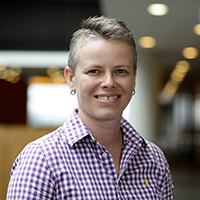Trauma & Addiction
Trauma and addiction frequently co-occur. About 1 in 2 people in addiction treatment settings have symptoms of PTSD, yet integrated treatment is not routinely available.

Help is available
Trigger Warning: Some people may find some aspects of this article triggering, particularly in relation to trauma, gambling or alcohol and drug use. Help is available.
For alcohol or other drug support: 1800 250 015 or Counselling Online
For gambling support: 1800 858 858 or Gambling Help Online
For support relating to sexual assault, domestic or family violence 1800 737 732 1800 RESPECT
Nearly 3 in 4 Australians will experience some form of potentially traumatic event in their lifetime, but only about 4.5% go on to develop symptoms of post-traumatic stress disorder (PTSD).
On the other hand, when we consider people in addiction treatment, rates of PTSD are as high as 50-60%. Many people living with addiction have multiple and repeated exposures to trauma, both in childhood and adulthood, from sexual or physical abuse, to assaults or experiences of family violence. The impact of these multiple traumas is cumulative, and lasting.
Childhood trauma
We know that the earlier you experience a trauma, the greater the risk of developing lasting problems- like addiction. Research suggests that for each additional increase in the number of childhood adversities experienced, a person has an increase in the risk of a drug use problem by 30-40%. In Australia, it is estimated that 1 in 3 adults exposed to childhood trauma developed a drug or alcohol problem later in life.
The relationship between trauma and addiction
There are many reasons that PTSD and addiction can go hand in hand. For many, substance use can be an effective way to cope with the distressing symptoms of PTSD- such as nightmares, flashbacks, or poor sleep. In the short term, alcohol, opioids, painkillers, or other drugs can help dampen these experiences. But in the longer term, substance use becomes less effective- and substance withdrawal mimics PTSD symptoms, worsening the feelings of being on edge and afraid.
When someone reduces or stops using, the symptoms of PTSD can re-emerge, leaving the individual without any means to cope. The two problems perpetuate and maintain each other in a vicious cycle that can be difficult to short-circuit. This is why it is so important to identify when trauma co-occurs with addiction, because treating the addiction alone won’t help the person recover.
We know that treating trauma and addiction is safe and effective
There is a commonly held assumption that talking about trauma makes addiction worse. This is a myth. The type, level and intensity of psychological treatment can vary depending on where someone is at, their readiness to stabilise their substance use and to engage in therapy. Trauma-focused and non-trauma focused integrated psychotherapies- such as ‘COPE’ or ‘Seeking Safety’ - have been researched for over a decade in Australia and internationally, and demonstrate that recovery, from both trauma and addiction, is a possibility for everybody.
Trauma treatment is not accessible and this needs to change
Although we know how commonly PTSD and addiction co-occur, standard addiction treatment approaches do not integrate care for both problems. Psychological treatments for trauma can be challenging to access across Australia, often with substantial out-of-pocket costs and long waits. We need to advocate for, and increase practitioners’ capacity to deliver, evidence-based approaches so that they are easily and readily available to all who need it.
By intervening effectively, we have the potential to transform the lives of many by reducing the enduring disability, personal and societal costs associated with these commonly co-occurring conditions.
Get involved with our research
Turning Point is now delivering COPE ‘Concurrent treatment of PTSD and substance use disorders using Prolonged Exposure’ for women in Melbourne. The Turning Point COPE program is suitable for women aged 25 years and over, with a current PTSD diagnosis and an interest in reducing or ceasing harmful AOD use. Individuals can contact [email protected] to learn more or to express interest in the program.
Prof Mills and her team at The Matilda Centre for Research in Mental Health and Substance Use, University of Sydney, are leading ‘COPE-A’ to treat PTSD and substance use among adolescents and young adults (aged 12-25 years). Register your interest here.
About the authors
Dr Shalini Arunogiri
Deputy Clinical Director Treatment Services, Turning Point and Senior Lecturer, Monash University.
Professor Katherine Mills
Professor Katherine Mills is an NHMRC Senior Research Fellow and Director of Early Intervention and Treatment Research at The Matilda Centre for Research in Mental Health and Substance Use.

